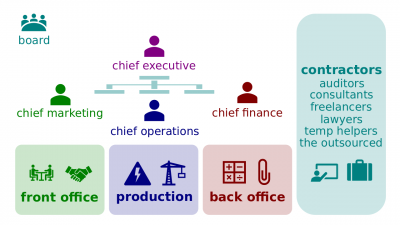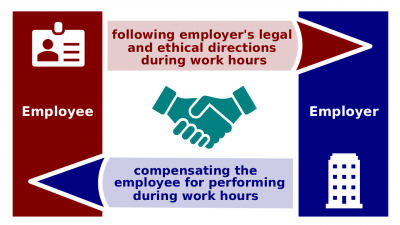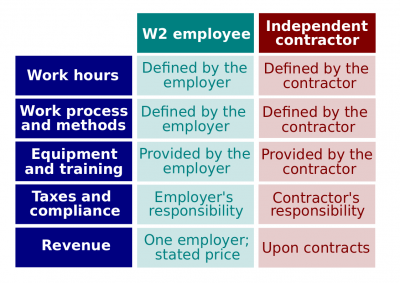Work Sellers
Work Sellers (hereinafter, the Lectio) is the second lesson part of the Employment Essentials lesson that introduces its participants to employment and related topics.
This lesson belongs to the Introduction to Employment session of EmployableU Foundation. The Foundation is the second stage of the WorldOpp Pipeline.
Content
The predecessor lectio is What Employment Is.
Script
- Employees sell their work or, to be more precise, their work time, to employers. Nonetheless, not all workers are employees. Those workers who are not employees are either (a) independent contractors or (b) volunteers.
- Independent contractors are self-employed; they are their own employers.
- Independent contractors provide their customers with their marketables, usually, services and rarely with their work time. Unlike employees, the contractors deliver what their contract specifies and they don't need to report the customers how the work is done and when the work is done.
- The United States Internal Revenue Service, which is better known by its acronym, IRS, distinguishes employees and independent contractors for tax purposes. In the United States, employers pay taxes for the employees, while the self-employed are responsible for their own taxes.
- Those contractors who work for different organizations, rather than working all the time for a single organization are known as freelancers.
- Self-employment is the state of working for oneself as a business owner, entrepreneur, independent contractor, or, in some circumstances, volunteer rather than for an employer.
- CNMCyber is here to help in whatever job you would like to land.
Key terms
Closing
- Is the difference between an employee and independent contractor explained well? --Yes/No/No opinion for now
Volunteer Workers is the successor lectio.
Questions
Placement entrance exam
- "Contractor" questions:
- An independent contractor is an entrepreneur him- or her-self.
- An employer pays (or cannot pay) wages or salaries to an independent contractor.
- An employer can modify what the independent contractor should accomplish without the contractor's consent.
- An employer can modify how the independent contractor should accomplish his or her work without the contractor's consent.
- Independent contractors are (not) self-employed.
- Independent contractors are (not) their own employers.




